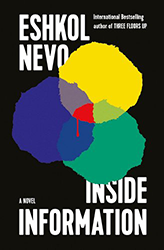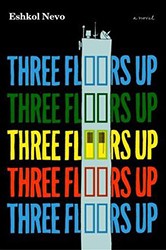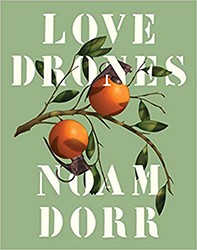In her engaging memoir, Yael Neeman tells not only her own story of growing up as a member of the Narcissus Group of Kibbutz Yehiam in the Galilee, but also the story of a generation of Israelis born into the Hashomer Hatzair movement and raised to live the labor Zionist dream.
The memoir opens with an overview of the lifestyle of the kibbutzim of the early twentieth century, which was enthusiastically perpetrated by refugees from Europe who arrived after World War II. Yehiam was one of many such kibbutzim, and it was there that Yael Neeman was born in 1960 to immigrants from Hungary.
Like in many other kibbutzim, in Yehiam children were not raised by their birth parents but instead placed into a children’s house, where they lived and were taken care of by specially selected members of the kibbutz. Youth spent time with their parents only a few hours a day, sometimes a little longer on Shabbat and festivals. Consequently, Neeman identified not as the child of her father and mother, but rather as a member of a specific group identified with one of Israel’s leading political movements of the time.
In keeping with Hashomer Hatzair’s Marxist philosophy, all issues — whether public or private — were decided by elected committees of the kibbutz. If one of the children wished to pursue a special educational course or career, a committee would have to give its approval, invariably based on whether it would benefit the community as a whole. Hard as it may be for today’s reader to understand, Neeman reports that “despite the difficulties, or maybe because of them, we were very happy and enjoyed the most intense experience of togetherness.”
As was true of most kibbutzim at the time, no members received salaries or material benefits. It was believed that the more devoted the individual was to their community, the better they would develop. While Israeli nationalism was paramount, Jewish religion played no part in the lives of the kibbutzniks — other than the Hebrew calendar, by which the community operated. There were no synagogues, no rabbis, no circumcisions, no kashruth, no mourners’ kaddish, and no mention of the Bible. Kibbutz Yehiam even worked on Yom Kippur
Neeman describes life on the kibbutz as she and her classmates moved together from grade to grade. Year by year they grew ever more alienated from their birth parents, and their parents more estranged from them in turn, until “we suddenly didn’t know each other anymore.” In their senior year of high school, Neeman’s class was were introduced to city life through “Broadening Horizon Weeks” in Tel Aviv, studies in a special Educational Institution, and additional coursework at Givat Haviva, a Zionist camp where they trained to become youth leaders. It was, however, on those very excursions that Neeman’s classmates developed as individuals and first “collided with the world,” given the opportunity to make their own decisions about their independent futures.
In spite of their lifelong training and indoctrination, Neeman and many of her fellow children of the Narcissus group chose to defect from the kibbutz movement. They continued to feel indebted to their kibbutz family for the life that they had been given but they felt the need to go abroad where, as Yael Neeman says, “for the first time in my life I was free.”
Related Content:





